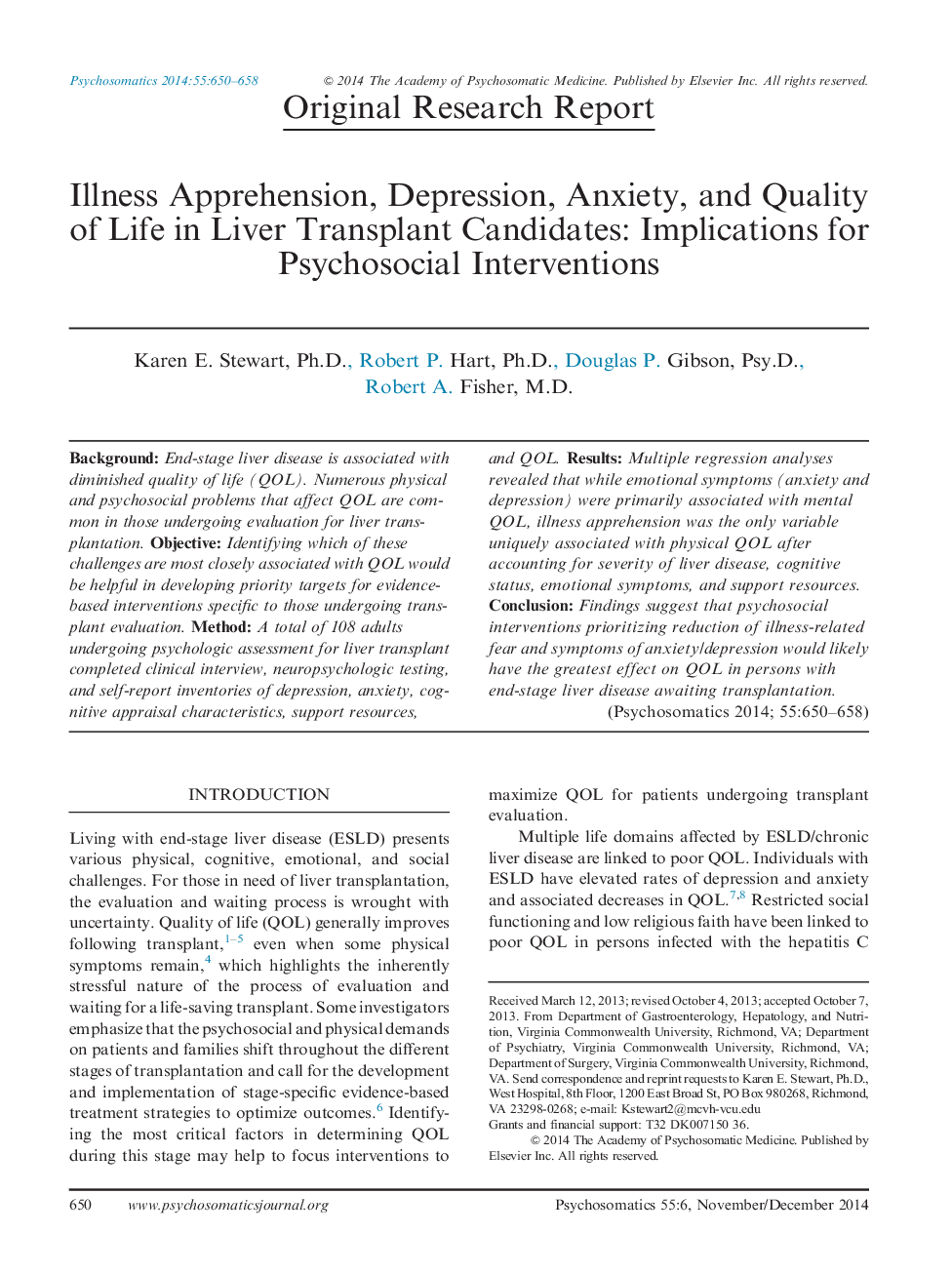| Article ID | Journal | Published Year | Pages | File Type |
|---|---|---|---|---|
| 337479 | Psychosomatics | 2014 | 9 Pages |
BackgroundEnd-stage liver disease is associated with diminished quality of life (QOL). Numerous physical and psychosocial problems that affect QOL are common in those undergoing evaluation for liver transplantation.ObjectiveIdentifying which of these challenges are most closely associated with QOL would be helpful in developing priority targets for evidence-based interventions specific to those undergoing transplant evaluation.MethodA total of 108 adults undergoing psychologic assessment for liver transplant completed clinical interview, neuropsychologic testing, and self-report inventories of depression, anxiety, cognitive appraisal characteristics, support resources, and QOL.ResultsMultiple regression analyses revealed that while emotional symptoms (anxiety and depression) were primarily associated with mental QOL, illness apprehension was the only variable uniquely associated with physical QOL after accounting for severity of liver disease, cognitive status, emotional symptoms, and support resources.ConclusionFindings suggest that psychosocial interventions prioritizing reduction of illness-related fear and symptoms of anxiety/depression would likely have the greatest effect on QOL in persons with end-stage liver disease awaiting transplantation.
